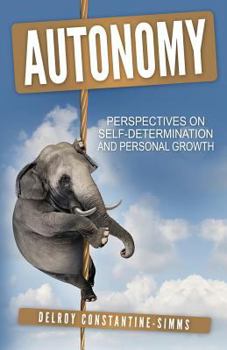Autonomy: Perspectives On Self-Determination and Personal Growth
Select Format
Select Condition 
Book Overview
This book offers a variety of perspectives on applied self-determination, with an underlying theme which suggests that self-determination is a strength that gives us power and control over our lives. Moreover, contributions in this book also suggest that when one has self-determination one has self-rule, freedom, freewill, and control. Without doubt, the freedom that one gets from self-determination is such that if allows us to think of ourselves as sovereign individuals, with uncontested rule over our personal domains, thus empowering us to make choices, enjoy liberty, and independence. In essence, self-determination is about having ultimate power and control of our own lives.
Format:Paperback
Language:English
ISBN:0892341173
ISBN13:9780892341177
Release Date:September 2007
Publisher:National Journal Group
Length:1850 Pages
Weight:2.96 lbs.
Dimensions:9.3" x 2.3" x 6.5"
More by N.A.M. Rodger
Customer Reviews
4 customer ratings | 4 reviews
There are currently no reviews. Be the first to review this work.




























